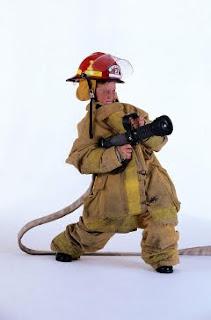Yesterday he sang.
Today he sings.
Tomorrow he will sing.
“will” is easy to use. It must have a verb (in the infinitive form) that goes along with it. Also, “will” doesn’t change for either person or number:
will + (inf. verb)
I will _____
You will _____
He / She / It will _____
We will _____
You will _____
They will _____
To form a negative, put “not” immediately after “will,” but before the infinitive verb:
I will not _____
You will not _____
He / She / It will not _____
We will not _____
You will not _____
They will not _____
“will” may also be contracted: will ==> ’ll
I will _____ ==> I’ll
You will _____ ==> You’ll
He / She / It will _____ ==> He’ll / She’ll / It’ll
We will _____ ==> We’ll
You will _____ ==> You’ll
They will _____ ==> They’ll
“will not” is contracted a little differently, though: will not ==> won’t
I will not _____ ==> I won’t
You will not _____ ==> You won’t
He / She / It will not _____ ==> He / She / It won’t
We will not _____ ==> We won’t
You will not _____ ==> You won’t
They will not _____ ==> They won’t
We can also use “think … will” to indicate something we are fairly ( about 75%, for example) certain is going to happen.
(Noun – often, a pronoun) + think + (noun, pronoun) + will + (inf. verb)

I think it will snow.
She thinks the children will like that movie.
They think he will be a fireman when he grows up.
We use “don’t think….will” to express that something is unlikely:
I don’t think it will rain on our parade.
He doesn’t think the library will be open on Sundays.
Sometimes, we use “will not” / “won’t” to indicate something that is unlikely to happen. It means the same thing as “don’t think…will”.
Tom thinks the economy won’t improve until next year.
They think the store won’t have any apples.
Exercise: Change the following sentences from simple present to future tense using “will”:
They go swimming at the pool. ==> They will go swimming at the pool.
He doesn’t sing in the shower. ==> He won’t sing in the shower.
1. Bob eats an apple every day.
2. The tailor fixes the broken zipper.
3. The band marches in the parade.
4. She bakes twelve different kinds of cookies for Christmas.
5. He doesn’t clean the basement in the spring.
6. We paint the house on the weekend.
7. Tom writes for the newspaper.
8. The children don’t watch TV after school.
9. Jack graduates from college next month.
10. Mary takes pictures at the party.
11. John brings hot dogs and hamburgers.
12. They buy drinks for everyone.
13. He doesn’t read 10 books a month.
14. You wash the car next week.
15. The bank opens at 9 o’clock.
16. Susan fills up the coffee pot.
17. The mailman drops off a package.
18. We don’t buy stamps at the post office.
19. They have a birthday party on Friday.
20. I study history as often as I can.



No comments:
Post a Comment